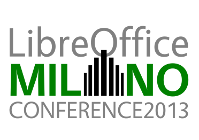 In a recent anti-trust submission to the European Commission, a coalition led by Microsoft falsely claimed that the distribution of free software free of charge hurts competition. FSFE has written a letter to the European Commission’s competition authorities to refute this claim and point out that free software is critical for an open, competitive IT market.
In a recent anti-trust submission to the European Commission, a coalition led by Microsoft falsely claimed that the distribution of free software free of charge hurts competition. FSFE has written a letter to the European Commission’s competition authorities to refute this claim and point out that free software is critical for an open, competitive IT market.
In its letter, FSFE urges the Commission to consider the facts properly before accepting these allegations at face value. “Free software is a boon for humankind. The only thing that it is dangerous to is Microsoft’s hopelessly outdated, restrictive business model,” says FSFE president Karsten Gerloff.
In essence,the so-called “FairSearch” coalition is asking the European Commission to favour a restrictive business model over a liberal one – exactly the opposite of what competition regulators should do to achieve a fair and open market.
“Free software is not about price, it’s about liberty, a guarantee of competition and vendor independence. Asking to cripple free software in order to allow proprietary vendors to sell their locked-down systems is just absurd” says Carlo Piana, FSFE’s General Counsel. “The most substantial threat to competition in the mobile space today are software patents, and we have repeatedly urged anti-trust authorities to address this problem,” he adds.
FSFE is asking the European Commission to dismiss the “FairSearch” coalition’s unfounded claims on predatory pricing and not make them part of whatever steps it decides to take in response to the group’s filing.
![]() The release schedule for Ubuntu 14.04 – the next long term support (LTS) release of this popular Linux distribution – has been published on the Ubuntu wiki.
The release schedule for Ubuntu 14.04 – the next long term support (LTS) release of this popular Linux distribution – has been published on the Ubuntu wiki.


 In a recent anti-trust submission to the European Commission, a coalition led by Microsoft falsely claimed that the distribution of free software free of charge hurts competition. FSFE
In a recent anti-trust submission to the European Commission, a coalition led by Microsoft falsely claimed that the distribution of free software free of charge hurts competition. FSFE  The GNOME project, one of the purveyors of the 2 main desktops and software for Linux,
The GNOME project, one of the purveyors of the 2 main desktops and software for Linux, 
 At the end of last week,
At the end of last week,